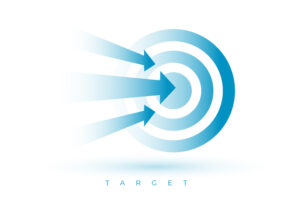4-Minute Read
“You don’t need a specific reason to save.”
- Morgan Housel (from the Psychology of Money)
You know why it’s important to save money, don’t you? You’ve heard it your whole life. You save and presumably invest money to reach your financial goals. You set inspirational and SMART goals for yourself. The more precise you can get with this, supposedly the better decisions you can make about how much to save now.
However, recognize the challenges that come with this approach. There’s often uncertainty surrounding any goal. Is the goal truly aligned with your values? Are the projected costs and time frames realistic? Are there other alternative goals that you should be considering?
Furthermore, you may have multiple competing goals, both in the short and long term. How do you manage and balance these different goals?
In a recent article discussing financial planning technology, Ben Henry-Moreland highlights an interesting trend. With the help of time-saving investment management technology, there has been a shift from narrow, goals-based plans to more comprehensive, cash-flow-based plans since the 2010s. As a financial planner, this has helped me provide clients with a better framework for the multiple-goal problem.
But changing behavior is another thing. Interestingly, I’ve come to find that traditional goals may not be necessary to drive proper savings habits. You probably know people with high goals and aspirations but struggle with saving. Clearly, other factors are at play.
In this piece, I’ll give you two (hopefully compelling) reasons to save regardless of how many individual financial goals you have.
One – Save for Freedom
Let me share a personal story. If you know me or work with me, you might know that I’ve gone through two major transitions in my professional life. The first was when I shifted from an engineer to a financial planner years ago. The second one happened about five years ago when I started my own practice.
Both transitions were quite challenging, as most significant changes in life tend to be. However, they would have been even more difficult if my wife and I hadn’t been disciplined savers in the years leading up to them. Our savings allowed us to have more freedom and options when it came to taking professional risks. As Morgan Housel (from the opening quote) also says, in this case, money gave us the ultimate dividend, which was control of our time.
Work optionality is a topic that I frequently discuss with clients. It refers to having the ability to choose when and how much you work. While retirement is the purest form of work optionality, many people do not want to retire outright. They just want the power to choose. Saving money is key to achieving this freedom.
It allows you to retire, scale back work, switch careers, start a new business, go back to college, or take a sabbatical. You may find that reaching this state of freedom is more fulfilling than reaching any particular financial goal.
A heavy savings focus may not be necessary for your entire working career. There is a time to sow and a time to reap. But if you want to enjoy the freedom that money can provide, there will likely be periods in your life when you need to focus intensely on saving.
If you do not prioritize saving now, you may already have the freedom you desire in your life. However, saving money is still important for another reason – to have flexibility to deal with the unknown.
Two – Save for Flexibility
As a former engineer, I tend to think in terms of systems. A good system can adjust to various inputs, making it more robust. In a previous blog, I wrote about the idea of having goals but focusing on systems. In that post, we discussed the advantages and limitations of goal setting.
Think about your current lifestyle and goals. Are they the same as they were ten years ago? For most people, the answer is probably no. This leads us to consider whether our goals for our lifestyle ten years from now will be accurate. There’s a good chance that they won’t be.
How do you build a plan if you don’t know your goals? Goals are important to the extent that they provide you with direction and focus. However, consider valuing flexibility as much, if not more, than goals. Saving can help you make adjustments in your life without having to predict the future with specificity.
It’s not just your own goals that can change over time. Many unpredictable events can challenge your financial stability, such as losing a job, facing medical problems, dealing with home repairs, experiencing a pandemic, or handling family emergencies.
Some of these risks can be insured against, but many other risks can’t be predicted. That’s why having financial options and flexibility is important to deal with these unknowns. Saving money is the key to getting to this state.
Bring Awareness to Your Savings Rate
While many things are outside of your control, you can largely control your saving behavior. As planners, we often suggest being aware of your savings rate. One way to measure this is to take your total annual savings and express it as a percentage of your total annual income.
If you’re not already retired, your savings rate is arguably the most powerful metric in all personal finance.
As with any metric, it’s not something to be obsessed about. Just track it and be aware of it. If there’s a misalignment between your savings rate and the feeling of freedom/flexibility you have, it’s a good thing in a weird way. You may have just found a real and motivating reason to become a better saver.
If you have comments or questions on this piece, please drop me a line at: [email protected]
References
- https://www.kitces.com/blog/advisortech-map-financial-planning-software-advice-engagement-benchmarking-studies/
- https://krishnawealth.com/have-goals-but-focus-on-systems/
The information on this site is provided “AS IS” and without warranties of any kind either express or implied. To the fullest extent permissible pursuant to applicable laws, Krishna Wealth Planning LLC (referred to as “KWP”) disclaims all warranties, express or implied, including, but not limited to, implied warranties of merchantability, non-infringement, and suitability for a particular purpose.
KWP does not warrant that the information will be free from error. None of the information provided on this website is intended as investment, tax, accounting or legal advice, as an offer or solicitation of an offer to buy or sell, or as an endorsement of any company, security, fund, or other securities or non-securities offering. The information should not be relied upon for purposes of transacting securities or other investments. Your use of the information is at your sole risk. Under no circumstances shall KWP be liable for any direct, indirect, special or consequential damages that result from the use of, or the inability to use, the materials in this site, even if KWP or a KWP authorized representative has been advised of the possibility of such damages.
In no event shall KWP have any liability to you for damages, losses, and causes of action for accessing this site. Information on this website should not be considered a solicitation to buy, an offer to sell, or a recommendation of any security in any jurisdiction where such offer, solicitation, or recommendation would be unlawful or unauthorized.





